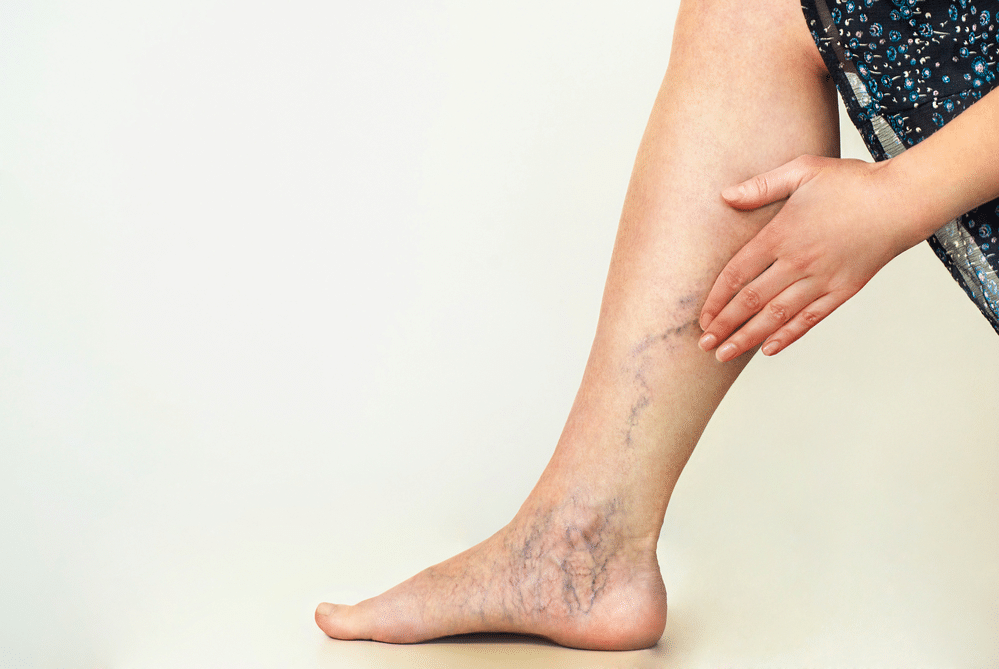Ambulatory phlebectomy is a safe, effective way to treat varicose veins and other forms of varicose veins. It is one of the most popular disordered vein treatments we offer at VENUS Vein Clinic in Omaha, NE, and we get a lot of questions about it. One of the most frequently asked questions we get about this treatment is when one should consider it. That’s what we aim to answer today.
When Should Someone Consider Ambulatory Phlebectomy?
When They Are Suffering From Varicose Vein Complications
You should strongly consider ambulatory phlebectomy if you are suffering from complications of varicose veins. Some of the most common symptoms are skin discoloration, cramping, and chronic pain. Your varicose symptoms may not bother you too much. However, if you have varicose veins, it is essential that you get treated as soon as possible.
There are a number of very serious complications that can arise if varicose veins are left untreated for too long. For example, you may experience ulcers, especially if you have varicose veins near your ankles. Blood clots are another complication that can arise if your varicose veins are not treated. If a blood clot breaks off, it can travel through your bloodstream. Sometimes, blood clots can end up in your lungs, causing a pulmonary embolism.
When Surgery Wasn’t Effective
Most of the time, people consider ambulatory phlebectomy because they want a minimally-invasive way to treat primary varicose veins. However, you should absolutely consider this treatment if you have residual varicose veins after surgery.
When They Are Not Bedbound
To be considered a good candidate for this treatment, it is very important that you can follow all recovery guidelines. One of the most important recovery guidelines is to get up and walk as soon as your treatment is complete. This is particularly important if the treated varicose veins were located in your legs. The contraction of your leg muscles helps to purge fluid from the area.
You also must be able to walk for at least 30 minutes daily during the first two weeks of your recovery. It’s okay if you feel extremely tired during the first day or two following your minimally-invasive phlebectomy.
When They Can Take Time Off From Work
Even if you are worried about varicose veins and capable of walking around after treatment, now may not be the right time for you to consider this treatment if you can’t take time off from work. An essential part of your recovery is to avoid any strenuous physical activity, like lifting heavy weights.
You won’t be able to go back to work for five to seven days after treatment if you have a physically demanding job. If you have a sedentary job, you should be prepared to take two to three days off from work after your varicose veins have been removed.
When They Aren’t Pregnant
While this treatment is safe for most relatively healthy adults, it is not suitable for pregnant women. If you are pregnant or suspect you are pregnant, you will not be considered a good candidate for this treatment. Furthermore, you will probably not qualify for this treatment if you are trying to become pregnant.
Other Frequently Asked Questions Answered
What Preparation Is Required Prior to Treatment?
Prior to your appointment, you need to buy compression stockings. It is highly advisable that you try them on prior to your appointment to verify that they fit and apply enough pressure. You must bring them to your appointment and put them on once your varicose veins have been removed.
You also will need to take a prescription muscle relaxant and analgesic an hour before your treatment. Furthermore, you should make sure your phone is charged when you come in for your appointment. It will probably take 45 minutes to an hour to complete, and people often like to play games on their phones to prevent boredom.
Will My Varicose Veins Come Back?
The results of minimally-invasive phlebectomy are considered permanent. During this treatment, your disordered veins are removed from your body. Your body will not grow new veins to replace them. However, you should be aware that veins that are currently healthy can become varicose in the future.
What Causes Varicose Veins?
Most of the time, varicose veins are caused by the valves and walls of the veins becoming extremely weak. In some cases, though, varicose veins are caused by your vein walls losing their elasticity due to excessive stretching.
What Can I Do To Reduce My Risk of Varicose Veins?
One of the most effective steps you can take to reduce your risk of future varicose veins is to avoid a sedentary lifestyle. If you have a sedentary job, it is crucial that you get at least 2.5 hours of moderate aerobic exercise weekly. Also, you should maintain a healthy weight.
Schedule Your Initial Consultation Today
You should consider ambulatory phlebectomy if you are suffering from varicose vein complications and are not bedbound. To find out if this is the ideal disordered vein treatment method for you, contact us now at VENUS Vein Clinic in Omaha, NE to schedule an initial consultation.

